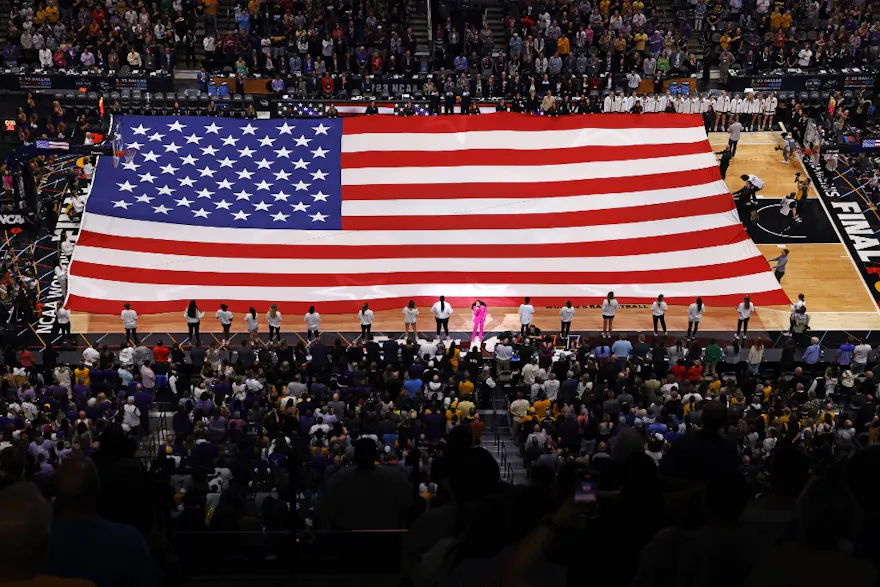AGA Shows Large Majority of Americans Approve Legal Sports Betting

Not long ago the idea of legally placing a sports bet on your favorite team at one of the best sportsbooks was inconceivable outside of Nevada. Politicians, sports leagues, and even the general public were made keenly aware of the threats to the integrity of the games that legal gambling would present, and the issues that problem gambling could pose.
In 2015 NFL Commissioner Roger Goodell didn't hide his opposition to legal sports betting. “We’ve been very open about our position that we oppose legalized sports gambling,” he said. “We haven’t changed our position on that. I don’t anticipate us changing that going forward at all.”
Things have indeed changed since the 2018 Supreme Court decision to overturn the Professional and Amateur Sports Protection Act (PASPA). Now 33 states have adopted their own legal sports betting platform since then, which typically include online betting sites. And teams, individual players, and leagues tied to America's biggest sports have aligned with sports betting providers. Americans have been wildly supportive of the legal sports betting scenes in their respective states.
Currently, 57% of the American public lives in a state with a legal sports betting platform, and most support the idea of legal sports betting for their jurisdictions.
Recent American Gaming Association (AGA) research reveals just how far the legal sports betting industry has come in the eyes of regular U.S. citizens. The overwhelming support of the platform may surprise a few. Let’s take a peek.
First, a little history
Sports betting in the U.S. has been taking place forever. Offshore sportsbooks and underground illegal black market providers had been taking sports bets in America for years.
The problem? Those markets were neither regulated, nor taxed. Sports bettors in America placed wagers at their own peril. There were no tax dollars for participating states to take advantage of until jurisdictions gained the right to determine whether a legal sports betting platform was a fit. Those areas also were able to decide exactly what tax rate would be appropriate for online and retail providers.
The "solution" of legalization and regulation has led to $220 billion being wagered with approved sports betting outlets in the U.S. since 2018 and about $3 billion in taxes for needy state and local tax coffers. Education, pension programs, health care initiatives, infrastructure projects, and problem gambling programs have been the biggest benefactor of the taxes raised from the U.S. legal sports betting industry.
The AGA findings
The American Gaming Association report on the state of the U.S. legal sports betting industry identified a host of eye-opening and interesting trends. The list includes:
- 85% of American adults agree with the Supreme Court's decision to strike down the Professional and Amateur Sports Protection Act (PASPA), compared to 63% in 2019.
- 77% of American adults support legalization in their state of residence.
- 39.2 million American adults have placed a traditional sports wager in the last 12 months.
- 78% of bettors place all or most bets through regulated operators.
- 77% of online sports bets are now placed through regulated operators, compared to just 44% in 2019.
From the black market to legalized sites
The transition away from illegal, offshore sportsbooks for Americans has been swift and remarkable. The AGA findings showed that almost half of the remaining betting holdouts plan to abandon the illegal, offshore sites in favor of approved gambling sites in the U.S.
90% of those currently using a regulated, legal U.S. sports betting site plan to stay with those operators, dealing a huge blow to unregulated, offshore books.
The reasons for the rise in popularity of regulated American-based sites is obvious. Players cite trust in regulated sites as a main factor. People have more faith that payments from legal sites are more reliable. Also, 58% of those surveyed like the accessibility of problem-gambling resources that regulated U.S. sites must provide.
Still...
There's some work yet to do for the legal sports betting industry in the U.S. Illegal, black market sites still hold about a 40% market share and take in an estimated $64 billion in bets per year. So legal sports betting jurisdictions around the country aren't claiming about $700 million annually in taxes.
The U.S. legal sports betting industry and the American public have come a long way in the five years since PASPA was overturned. Sports betting has quickly become ingrained in the sports viewing experience.
The goal now is to get 100% of Americans using government-regulated betting sites. That won’t happen until more states get on board with legal sports betting, and more than the current 57% of the American public are able to place a legal sports bet.







